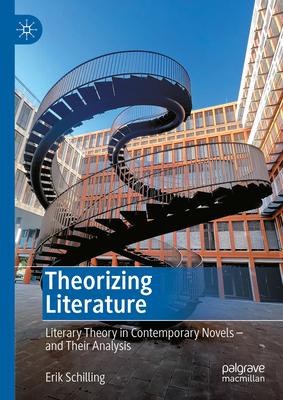This book offers an analytical model for the interpretation of theory-informed novels - American, English, French, German, and Italian - from the past 50 years. Works discussed include Laurent Binet's The 7th Function of Language, Italo Calvino's If on a Winter's Night a Traveler, Patricia Duncker's Hallucinating Foucault, Umberto Eco's Foucault's Pendulum, David Lodge's Small World, and Juli Zeh's Dark Matter. Erik Schilling shows how these works not only incorporate elements of theory in playful, intertextual ways, but productively work with theory - for instance, by elaborating the complexities of the roles of author and reader or by confronting the quest for meaning with an infinite network of signs. Schilling argues that the novels do not merely adopt theory; they create theory - and this theorizing literature requires new forms of interpretation.

Theorizing Literature: Literary Theory in Contemporary Novels - And Their Analysis
This book offers an analytical model for the interpretation of theory-informed novels - American, English, French, German, and Italian - from the past 50 years. Works discussed include Laurent Binet's The 7th Function of Language, Italo Calvino's If on a Winter's Night a Traveler, Patricia Duncker's Hallucinating Foucault, Umberto Eco's Foucault's Pendulum, David Lodge's Small World, and Juli Zeh's Dark Matter. Erik Schilling shows how these works not only incorporate elements of theory in playful, intertextual ways, but productively work with theory - for instance, by elaborating the complexities of the roles of author and reader or by confronting the quest for meaning with an infinite network of signs. Schilling argues that the novels do not merely adopt theory; they create theory - and this theorizing literature requires new forms of interpretation.